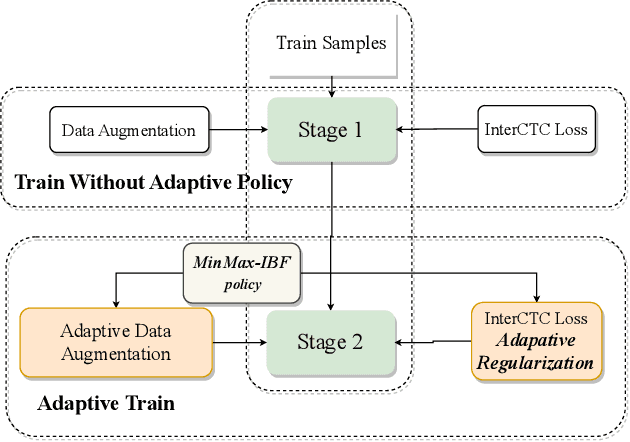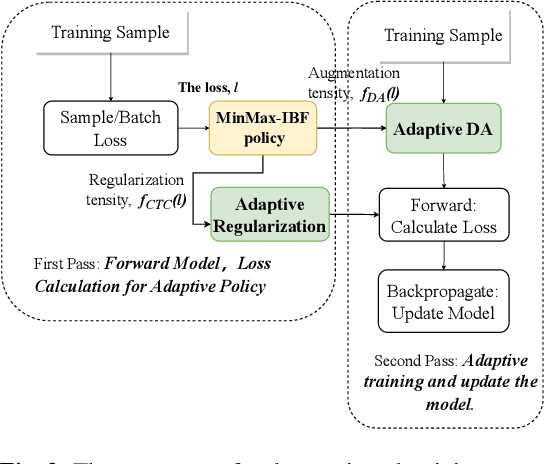Shenjian Wang
Complexity boosted adaptive training for better low resource ASR performance
Dec 01, 2024



Abstract:During the entire training process of the ASR model, the intensity of data augmentation and the approach of calculating training loss are applied in a regulated manner based on preset parameters. For example, SpecAugment employs a predefined strength of augmentation to mask parts of the time-frequency domain spectrum. Similarly, in CTC-based multi-layer models, the loss is generally determined based on the output of the encoder's final layer during the training process. However, ignoring dynamic characteristics may suboptimally train models. To address the issue, we present a two-stage training method, known as complexity-boosted adaptive (CBA) training. It involves making dynamic adjustments to data augmentation strategies and CTC loss propagation based on the complexity of the training samples. In the first stage, we train the model with intermediate-CTC-based regularization and data augmentation without any adaptive policy. In the second stage, we propose a novel adaptive policy, called MinMax-IBF, which calculates the complexity of samples. We combine the MinMax-IBF policy to data augmentation and intermediate CTC loss regularization to continue training. The proposed CBA training approach shows considerable improvements, up to 13.4% and 14.1% relative reduction in WER on the LibriSpeech 100h test-clean and test-other dataset and also up to 6.3% relative reduction on AISHELL-1 test set, over the Conformer architecture in Wenet.
 Add to Chrome
Add to Chrome Add to Firefox
Add to Firefox Add to Edge
Add to Edge